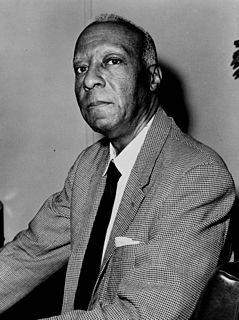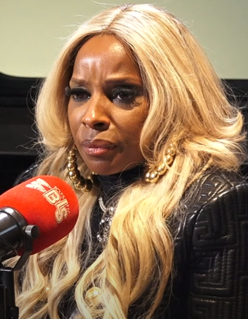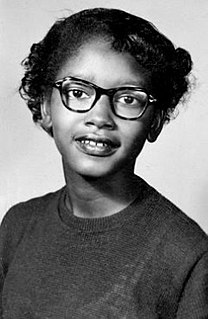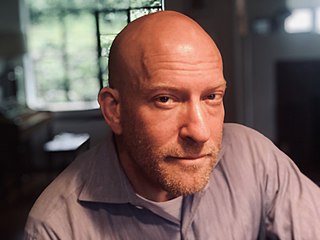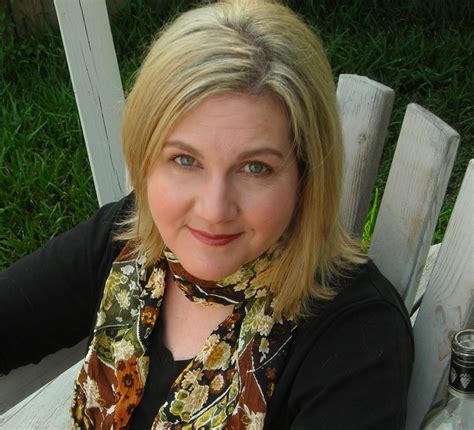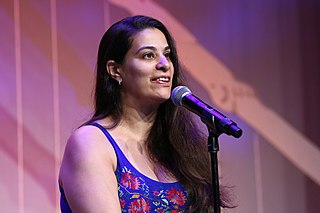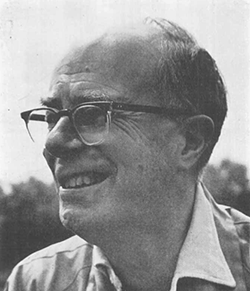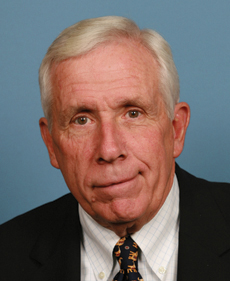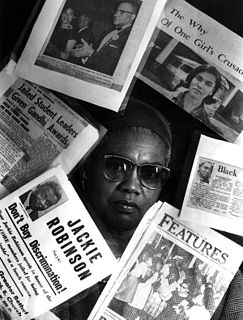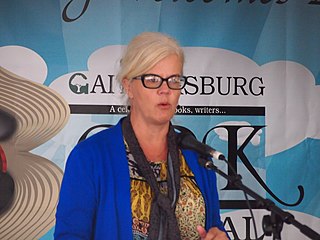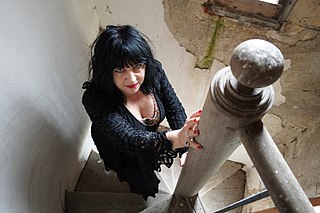Top 334 Segregation Quotes & Sayings - Page 5
Explore popular Segregation quotes.
Last updated on December 22, 2024.
Most new prison construction has occurred in predominately white, rural communities, and thus a new and bizarre form of segregation has emerged in recent years. Ghetto youth are transferred from their decrepit, underfunded, racially segregated schools to brand-new high-tech prisons located in white rural counties.
I truly believe that one of the things that has been lacking in America is a spirit of repentance about the injustices of slavery and the injustices of segregation and racism generally. I truly believe that we cannot come to a place of reconciliation until there is individual repentance and corporate repentance.
I think everyone should understand history of segregation the same way we had to go to school and read about George Washington. I believe this generation should know their history and they should know that the struggle's not over yet. For instance, you can't get the cover of a magazine if your skin is too dark.
We are so isolated in our own little worlds, in our own little geographies, that it's pretty hard to understand where someone else is coming from. And so I think that we have to really think about what that means as a country and, frankly, whether this segregation that we have is durable over the long run.
To have one's race brutally treated for so many years, even after the end of slavery and segregation, people are going to rise up with violence to attain what they believe is rightfully theirs. The most important thing at this time is raising the awareness of everyone; people need to be educated everywhere about all aspects of racism and how it affects people still today.
Back then, as a teenager, I kept thinking, Why don't the adult around here just say something? Say it so they know we don't accept segregation? I knew then and I know now that, when it comes to justice, there is no easy way to get it. You can't sugarcoat it. You have to take a stand and say, 'This is not right.' And I did.
In supporting argument for segregation, Paul [the apostol] addresses the people in his epistle to the Colossians, and he tells them how to treat their slaves. "Slaves, obey your masters. Masters, be kind to yourslaves." Paul was in favor of a kinder and gentler slavery; it never occurred to him to raise the question about whether slavery itself was immoral.
The greatest leaders in fighting for an integrated America in the twentieth century were in the Democratic Party. The fact is, it was the liberal wing of the Democratic Party that ended segregation. The fact is that it was Franklin Delano Roosevelt who gave hope to a nation that was in despair and could have slid into dictatorship. And the fact is, every Republican has much to learn from studying what the Democrats did right.
Adolescence was invented in the 19th century to enable middle-class families to keep their children out of sweatshops. But it has degenerated into a process of enforced boredom and age segregation that has produced one of the most destructive social arrangements in human history: consigning 13-year-old males to learning from 15-year-old males.
Cincinnati like so many other cities, we know that so many of our schools, when it comes to public schools, are still de facto segregated racially. It has to do with residential segregation. It has to do with James Crow, Jr., which is at work, de facto rather than legally so that some of the integration is taking place among more and more well-to-do.
Bail out the bankers and bankrupt the school teachers - we will still teachI will never follow the lead of those who exclude the kids who need education the most so that my precious scores will rise. I will never line up with those whose idea of reform is the subtle segregation of the poor and desperate. I want no part of the American caste system.
Housing is where it all begins. Where you live determines everything from where you shop for food, to how safe your neighborhood is, to your kids' school, to whether you're exposed to toxic chemicals on a daily basis. And as a New Yorker, I found it impossible not to notice and be bothered by the huge number of homeless people in the city, as well as by the segregation and gentrification that's all around you.
After I found out that I was playing music and that I'd have to learn how to read and write music, I started doing that about two years later. Finally, I said, "Oh, that means what I really want to do is to be a composer." But when I was coming up in Texas, there was segregation. There was no schools to go to. I taught myself how to read and how to start writing.
Much of what I do now stems from my rage at segregation and discrimination. I can't stand to see children not able to do anything, anybody not able to do what they can do. The daily lessons of exclusion, having hand-me-down books in schools, of seeing ambulances turn away and not give health care for people lying in the streets who are migrant workers. Everything I do today stems from that segregated existence.
There are some things concerning which we must always be maladjusted if we are to be people of good will. We must never adjust ourselves to racial segregation. We must never adjust ourselves to religious bigotry. We must never adjust ourselves to economic conditions that take necessities from the many to give luxuries to the few.
Ultimately, of course, there is no excuse for being fat in this culture. It's the one last prejudice we allow ourselves, the final frontier of acceptable segregation. Our political correctness is positively Californian when it comes to race, creed, origin, and orientation. But we still condemn ourselves and others for this last intolerable offense in an annoyingly tolerant society.
Some Israeli politicians have proposed the transfer of Palestinians out of what is currently called Israel, either into the occupied territories, into Jordan or out into other Arab lands, with the idea that there would be no intermixing of Palestinian and Jewish Israelis or Palestinian and Jewish communities. But the idea of an absolute segregation is one that I find lamentable.
All of you are aware of the tragic history of racism in America, but for a very long time, African-Americans and their white allies came together and they struggled and they stood up for justice and they stood up to lynching and they stood up to segregation and the stood up to a nation where African-Americans couldn't even vote in America.
I am not naive, and I do realize that racism is alive and well in the United States of America. I am also fully aware that when segregation ended, we didn't all live happily ever after. No one can convince me, however, that life in America would be better if blacks and whites had stayed separate and unequal.
Back then, as a teenager, I kept thinking, why don't the adults around here just say something? Say it so they know we don't accept segregation? I knew then and I know now that, when it comes to justice, there's no easy way to get it. You can't sugarcoat it. You have to take a stand and say, 'This is not right.'
The fundamental problem in the origin of species is not the origin of differences in appearance, since these arise at the level of the geographical race, but the origin of genetic segregation. The test of species-formation is whether, when two forms meet, they interbreed and merge, or whether they keep distinct.
Unlike [Woodrow] Wilson, Louis Brandeis did not support the segregation of the federal government. He was personally courteous to African Americans. He advised them and advised the head of Howard University to create a good law school. And that inspired Charles Hamilton Houston and Thurgood Marshall in their path-breaking work on behalf of desegregation.
Childhood is analogous to language learning. It has a biological basis but cannot be realized unless a social environment triggers and nurtures it, that is, has need of it. If a culture is dominated by a medium that requires the segregation of the young in order that they learn unnatural, specialized, and complex skills and attitudes, then childhood, in one form or another, will emerge, articulate and indispensable.
Segregation, as even the segregationists know in their hearts, is morally wrong and sinful. If it weren't, the white South would not be haunted as it is by a deep sense of guilt for what it has done to the Negro - guilt for patronizing him, degrading him, brutalizing him, depersonalizing him, thingifying him; guilt for lying to itself. This is the source of the schizophrenia that the South will suffer until it goes through its crisis of conscience.
The emergency problem of segregation and sterilization must be faced immediately. Every feeble-minded girl or woman of the hereditary type, especially of the moron class, should be segregated during the reproductive periodwe prefer the policy of immediate sterilization, of making sure that parenthood is absolutely prohibited to the feeble-minded.
The white population could not possibly be unaffected by those events - some whites more stubborn in their defense of segregation, but others beginning to think in different ways. And the black population was transformed, having risen up in mass action for the first time, feeling its power, knowing now that if the old order could be shaken it could be toppled.
One of life's intriguing paradoxes is that hierarchical social order makes cheap rents and outré artists' colonies possible. Raffish bohemian neighborhoods flourished in the days of racial segregation; under integration the artistic poor have no safe places in which to create.... If America lacks a vigorous culture it is partly because studios and ateliers have become crack houses.
I think it's a bit of a myth that black Americans need one leader. We're not a monolith. And now that legal segregation and discrimination has been pretty much abolished there isn't the sort of universal mandate that a black leader would have. Black folks live in a wide variety of social situations right now.
My parents were 30 years older than I was, and my parents had my brother and I ten years apart. My parents grew up in segregation, and they both lived in all-black neighborhoods and grew up with large black families. I didn't have any of that, and I didn't understand feeling so differently and being treated so differently.
In studying food, you embrace everything. Food exposes the long, complex history of the South - slavery, Jim Crow segregation, class struggle, extreme hunger, sexism, and disenfranchisement. These issues are revealed through food encounters, and they contrast this with the pleasure and the inventiveness of Southern cuisine. Food is always at the heart of daily life in the South.
I grew during segregation in an all-black segregated neighborhood with segregated schools, etcetera. I was raised by a great father, my hero, who I much admired. So, I never really had anxiety in the way that someone like Obama would have. When he walks down the street alone, since no one knows who his mother is, they're just going to see him as a black guy.
Priscilla and I, and nine others, had been charged with
'disturbing the peace,' among other charges, because we tried to order food at Woolworth. If not for segregation, and the fact that we were all Negroes, we would have been served without incident. At our trial on March 17, 1960,
Judge John Rudd ruled that our lawyers should
'get off that race question.'
So many white people don't want to talk about race; it's uncomfortable. Many reason that slavery happened more than a century ago, and people alive today had nothing to do with it. But the particulars of these stories, from slavery to segregation to civil rights and mass incarceration, are at the marrow of life in America today.
History is a story like any other, but black history is a story so devoid of logic that it frustrates the young reader. The young readers in my house, told of slavery and segregation, asked in disbelief, 'What? Why?' We - the parents of black children, the parents of all children - still need to tell that story.
... many of the things which we deplore, the prevalence of tuberculosis, the mounting record of crime in certain sections of the country, are not due just to lack of education and to physical differences, but are due in great part to the basic fact of segregation which we have set up in this country and which warps and twists the lives not only of our Negro population, but sometimes of foreign born or even of religious groups.
In the segregated South, education was almost like armor. It was a way to put yourself in a category where even with the slings and arrows and humiliations of racism and segregation, somehow you had better control of the situation. I always said my parents understood that you might not be able to control your circumstances, but they and their parents believed that you could control your reaction to your circumstances.
Slowly I began to realize that the bells and the confinement, the crazy sequences, the age-segregation, the lack of privacy, the constant surveillance, and all the rest of the national curriculum of schooling were designed exactly as if someone had set out to prevent children from learning how to think and act, to coax them into addiction and dependent behavior.
I grew up in the South [USA states] under segregation. I know what terrorism feels like - when your father could be taken out in the middle of the night and lynched just because he didn't look like he was in an obeying frame of mind when a white person said something he must do. That's terrorism, too.
The persistence of housing discrimination and housing segregation makes it difficult at times to integrate schools. So what flows from that is disappointment and cynicism and the search for what's next. And it's really in the search for what's next after that that we come upon ideas like increasing standardized testing for kids and using those tests scores to hold teachers accountable.
There could be no more powerful argument against mixing religion and government than the success of independent African American churches in placing racial segregation and discrimination on a reluctant nation's social agenda. Would black churches have been able to take the lead in the struggle had they been dependent on funds doled out for 'faith-based initiatives' . . . ?
When I grew up in the South, I was taught that segregation was the will of God, and the Bible was quoted to prove it. I was taught that women were by nature in inferior to men, and the Bible was quoted to prove it. I was taught that it was okay to hate other religions, and especially the Jews, and the Bible was quoted to prove it.
Unfortunately, most of the major denominations still practice segregation in local churches, hospitals, schools, and other church institutions. It is appalling that the most segregated hour of Christian America is eleven o'clock on Sunday morning, the same hour when many are standing to sing: "In Christ There Is No East Nor West.
There was an email forwarded to me from a first-grade teacher, and she said she was teaching them civil rights for MLK weekend, and a little first-grader stood up, and he said, 'I can explain segregation,' and proceeded to explain all the scenes from 'Hidden Figures.' And I died because that's everything.
I decided to lock myself in. A forced segregation. Sabbatical. A retreat into myself. My selves. Play hide and go seek in the looking-glass. The mirror angled at the foot of my bed. Twisted reflections bouncing off into infinity. Obsessed with my image, the myriad of distored figurines who danced in front of me in rapid succession, every feature exaggerated, every slight imperfection a new delicacy.
I'd spend every summer in Longview on my grandfather's farm. It was a tiny little town divided by a river, which was the segregation line: that side white, this side black. And meanwhile, I lived in Compton - basically, another whole world sealed into 10 square blocks. It's interesting how insular an environment can be.
I am also very proud to be a liberal. Why is that so terrible these days? The liberals were liberatorsthey fought slavery, fought for women to have the right to vote, fought against Hitler, Stalin, fought to end segregation, fought to end apartheid. Liberals put an end to child labor and they gave us the five day work week! What's to be ashamed of?
The 20th century was a turning point; it freed and emancipated women, broke the back of segregation, and began the struggle to give justice to gay and lesbian people. But the Christian church, in both Catholic and Protestant forms, resisted every one of those humanizing developments. The church was on the wrong side of all three of those fights.


